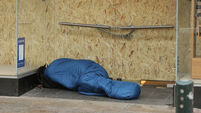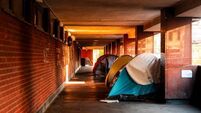Rory Hearne: We need urgent action if we don't want our children asking Santa for a place to live

Evictions have dramatically increased since the lifting of the Covid ban on evictions. The second quarter of this year saw the highest number of evictions registered since 2019. File photo: iStock
“We’ve been given notice to leave our property. We’d been renting for two years, the landlord is selling. We applied to over 70 properties but as of Friday, we are homeless. The council are placing us in emergency accommodation. I have four little girls (age 7,5,2,1) as well as my partner, and I don’t know where else we need to turn to try and find somewhere for us to have a home.”
Toni’s call to RTÉ’s Liveline last week provided another human story of how the housing crisis has spiralled out of control.
















